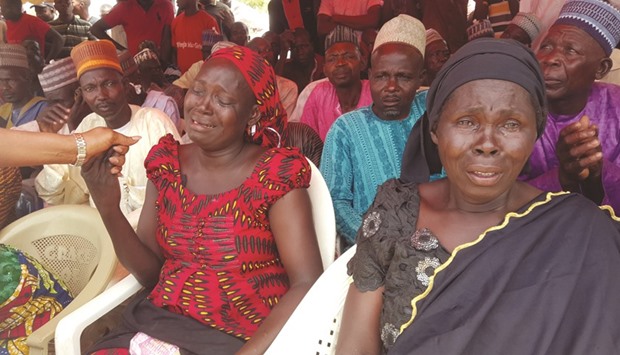This month, the world turns its attention to Boko Haram and the 276 Chibok schoolgirls the Nigerian terrorist group abducted on April 14, 2014.
Hashtags like “Bring Back Our Girls” and “Never Forget” trend on Twitter to mark the two-year anniversary of the event that gained Boko Haram global attention.
Some people may ask, “Whatever happened to the 219 girls still missing?” and speculate about whether they’ll ever be found.
Soon, however, the attention will quickly fade.
Each time the Islamic State (IS or ISIS) strikes in cities like Paris or Brussels, I share in the collective sadness and anger. But these tragedies also are harsh reminders that the acts of terrorism occurring almost weekly in the villages of Nigeria, Cameroon and neighbouring nations receive little public reaction.
Shouldn’t African lives matter, too?
Unlike IS, Nigeria’s insurgents are uninterested in sacrificing their lives to achieve their aims. They prefer instead to send women and girls as young as seven on suicide missions, which has happened more than 100 times, including 22 this year.
How ironic is it that before sending them out with bombs, the women and girls are taught in classroom-like settings how to carry out their deadly missions? After all, Boko Haram loosely translates to “Western education is forbidden.”
Boko Haram beheads and burns people alive and has reduced hundreds of villages to dust.
More than 2mn people have fled their homes, but refuge does not ensure respite. The terrorists have forced the closing of thousands of schools and tens of thousands of people are at risk of starving to death.
Women and girls who manage to make their way home or to a refugee camp after being abducted, repeatedly raped and trafficked as sex slaves are stigmatised and shunned like lepers.
Since 2009, Boko Haram has killed 20,000 people, including as many as 2,000 during a multi-day raid in January 2015.
I suspect that a terrorist attack that killed thousands of Europeans in one week would be met with extreme outrage and perhaps military intervention. Yet, the average American doesn’t know that Boko Haram has been ranked the world’s deadliest terrorist group.
I’ve spent two years fighting to keep focus on the missing girls and efforts to defeat Boko Haram. That includes two trips to Nigeria to speak with victims and families, and meetings with Nigerian President Muhammadu Buhari and former president Goodluck Johnathan.
I’ve passed bills, spearheaded a Twitter campaign, and each week I corral my House colleagues to participate in the Wear Something Red Wednesday photo opportunity to demonstrate support for the Chibok girls.
The Obama administration also has provided a range of logistical and intelligence support.
These are important steps, but Nigerian voters must also put a great deal more pressure on their elected officials and hold them accountable or vote them out of office.
Paris and Brussels buoyed by global support have been able to quickly bounce back. Life for tens of thousands of West Africans won’t be the same for generations to come. The world should also support them because their lives matter, too.
- Frederica S Wilson represents Florida’s 24th congressional district in the US House of Representatives.

Parents of missing schoolgirls weeping during a vigil at the school site in Chibok. Boko Haram abducted a total of 276 girls from the Government Girls Secondary School in Chibok, northeast Nigeria, on April 14, 2014. Fifty-seven escaped in the immediate aftermath. Search continues for the 219 girls still missing.
